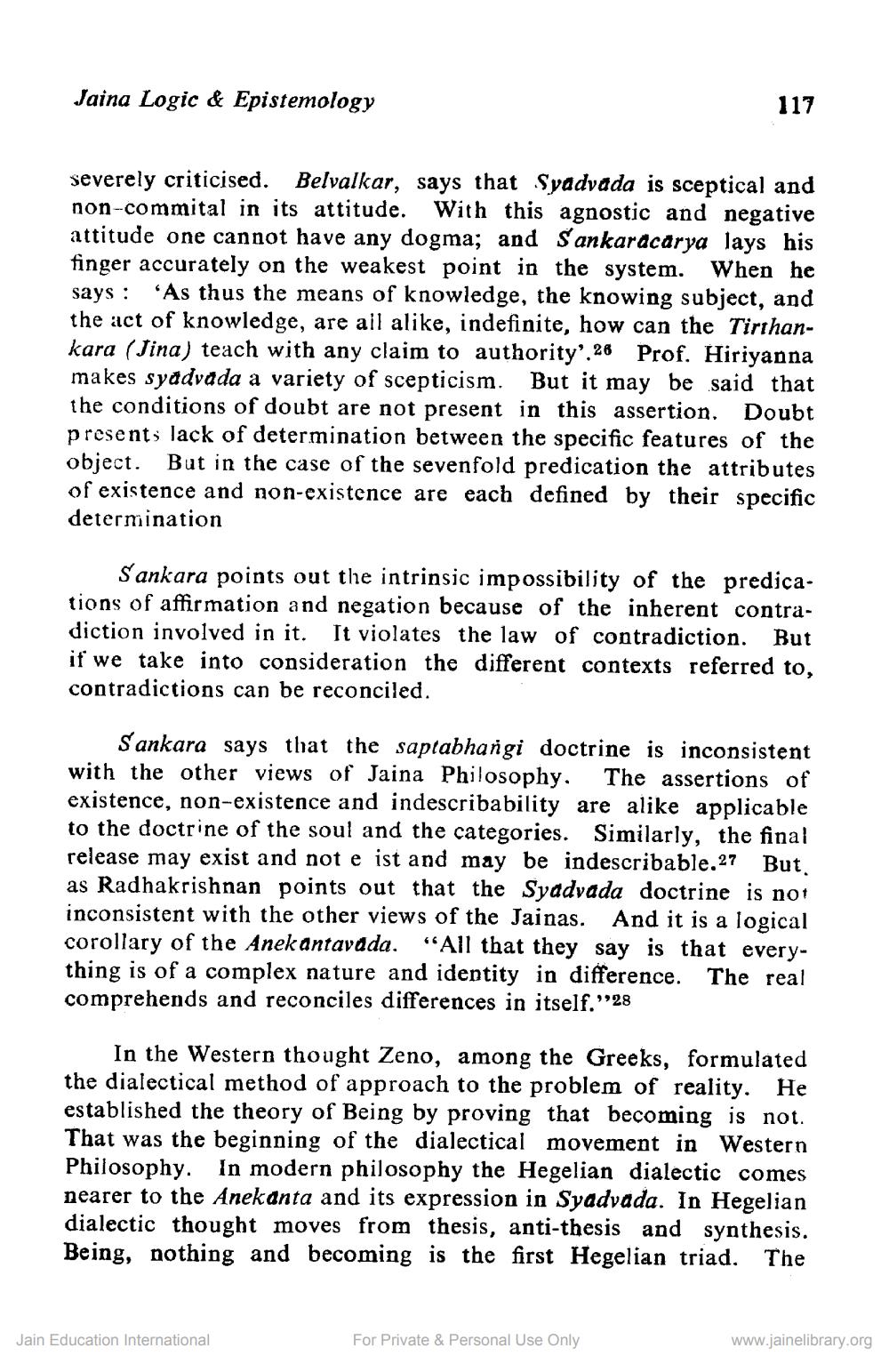________________
Jaina Logic & Epistemology
117
severely criticised. Belvalkar, says that Syadvada is sceptical and non-commital in its attitude. With this agnostic and negative attitude one cannot have any dogma; and Sankarácarya lays his finger accurately on the weakest point in the system. When he says : “As thus the means of knowledge, the knowing subject, and the act of knowledge, are all alike, indefinite, how can the Tirthankara (Jina) teach with any claim to authority’:26 Prof. Hiriyanna makes syadvada a variety of scepticism. But it may be said that the conditions of doubt are not present in this assertion. Doubt presents lack of determination between the specific features of the object. But in the case of the sevenfold predication the attributes of existence and non-existence are each defined by their specific determination
Sankara points out the intrinsic impossibility of the predications of affirmation and negation because of the inherent contradiction involved in it. It violates the law of contradiction. But if we take into consideration the different contexts referred to, contradictions can be reconciled
Sankara says that the saptabhangi doctrine is inconsistent with the other views of Jaina Philosophy. The assertions of existence, non-existence and indescribability are alike applicable to the doctrine of the soul and the categories. Similarly, the final release may exist and not e ist and may be indescribable.27 But as Radhakrishnan points out that the Svadyada doctrine is not inconsistent with the other views of the Jainas. And it is a logical corollary of the Anekantavdda. “All that they say is that everything is of a complex nature and identity in difference. The real comprehends and reconciles differences in itself."28
In the Western thought Zeno, among the Greeks, formulated the dialectical method of approach to the problem of reality. He established the theory of Being by proving that becoming is not. That was the beginning of the dialectical movement in Western Philosophy. In modern philosophy the Hegelian dialectic comes nearer to the Anekanta and its expression in Syadvada. In Hegelian dialectic thought moves from thesis, anti-thesis and synthesis. Being, nothing and becoming is the first Hegelian triad. The
For Private & Personal Use Only
Jain Education International
www.jainelibrary.org




